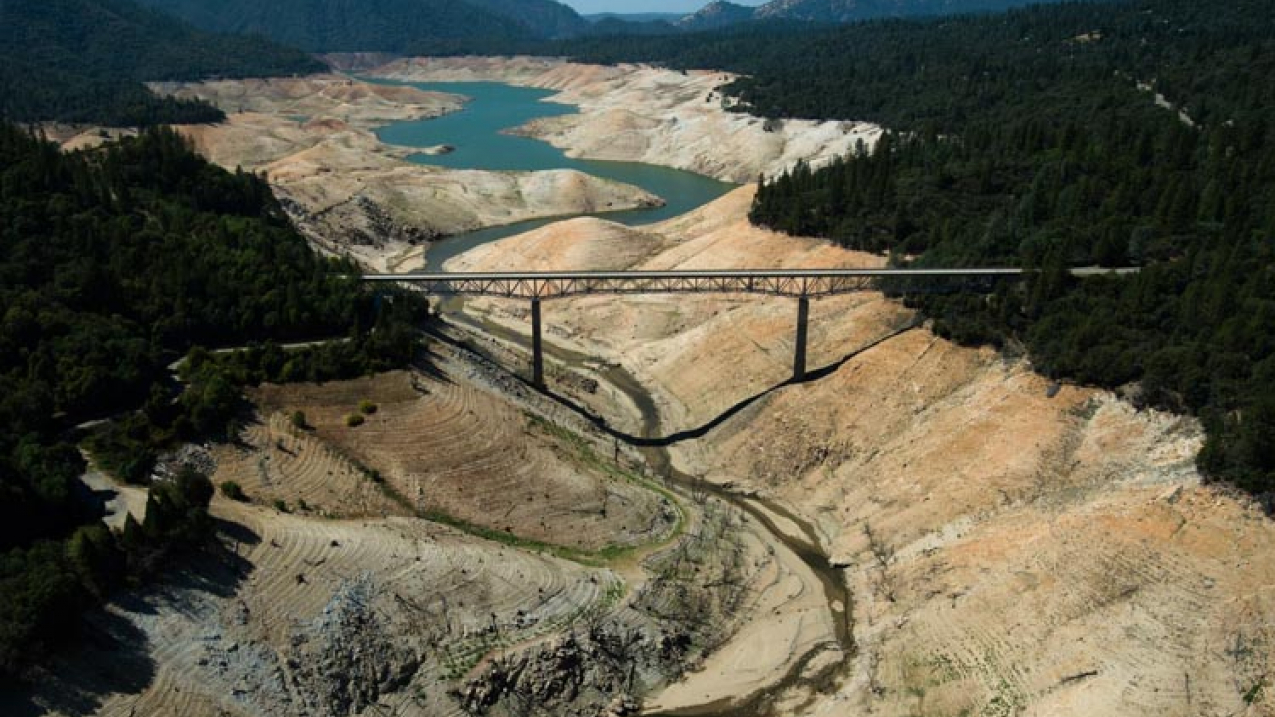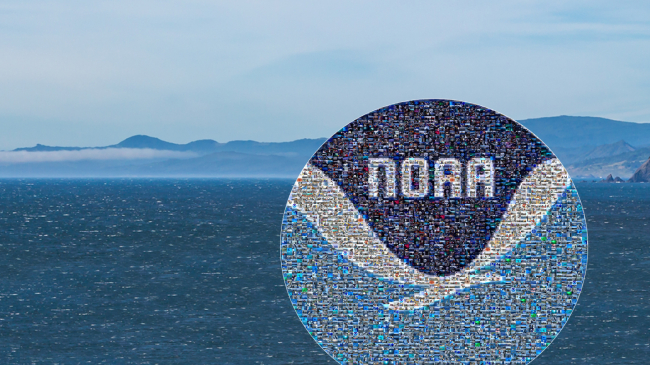NOAA’s Climate Program Office (CPO) today announced it has awarded $48 million for 53 new projects. Research will be conducted by NOAA laboratories and operational centers, universities, and other agency and research partners to advance the understanding, modeling, and prediction of Earth’s climate system and to improve decision making.

The Enterprise Bridge passes over a section of Lake Oroville that was nearly dry on September 30, 2014, in Oroville, California. Lake Oroville, California's 2nd largest reservoir, was at 49% of average (30% of capacity), the second lowest level on record (behind 1977.) Heavy rains in December 2014 allowed lake levels to recover slightly--as of January 23, 2015 Lake Oroville was at its 7th lowest level of the past 35 years. (Image credit: California Department of Water Resources)
A corn crop in Arkansas is stunted and sparse due to drought conditions. (Credit: USDA NRCS Photo Gallery, Tim McCabe)
The results of research funded by these grants are expected to have impacts far beyond individual projects. Some of the anticipated results include more accurate weather and climate prediction, early warning of drought hazards, more robust decision-support services, enhanced community and drought preparedness, and improved ability to respond and adapt to public health impacts.
The funds will be distributed over the life of the projects, many of which span one to five years. All awards were selected through an open, highly competitive process.
"Every day, communities and businesses in the U.S. and around world are grappling with environmental challenges due to changing climate conditions and extreme events," said Wayne Higgins, director of the Climate Program Office. "People want timely and relevant scientific information about where and why climate variability and change occur and what impacts that has on human and natural systems. CPO's competitive grants play a vital role in advancing understanding of Earth's climate system and in transitioning our data, tools, information, and operations to applications the public can use to improve decision making.”
The projects will support these priorities:
- Provide high-quality, long-term global observations, climate information and products, $5.1 million for projects to produce global and regional indices to help monitor climate, weather, and sea ice trends, which provide information to forecasters, researchers, and decision makers in communities across the country.
-
Provide leadership and support for research, assessments, and climate services to key sectors and regions, $24.4 million — including $19.5 million for Regional Integrated Sciences & Assessment Programs from Hawaii to New York — to improve the ability of local communities to prepare for and adapt to climate change.
Great Lakes Regional Sciences and Assessments (A RISA program) hosts workshop in St. Paul, Minnesota connecting local governments with climate adaptation science. (Credit: With permission from Daniel Brown).
- Improve critical forecasts and bolster earth system models, $10.2 million to improve predictions and projections on a range of time scales from weeks to seasons, to decades, and centuries in the future.
- Improve prediction of drought and other extreme events, $8.4 million to improve earth system models and predictions through the North American Multi-Model Ensemble System (NMME), a state-of-the-art seasonal prediction system, and help fund the creation of a new task force and improved software infrastructure for NOAA weather and climate models.
A farmer in the Midwest struggles with drought conditions. (Credit: Climate.gov and U.S. Climate Resilience Toolkit photo)
CPO manages competitive research programs that fund climate science, assessments, decision-support research, modeling improvements, and capacity-building activities. While each program has its own focus, together they demonstrate NOAA’s commitment to advancing integrated climate research and enhancing society’s ability to plan and respond to climate variability and climate change. CPO’s network of partners, specialists, and principal investigators will broadly integrate research findings from these projects to help build resilience in the face of climate challenges.
A full list of awards, as well as individual announcements for each program, is available online.
NOAA’s mission is to understand and predict changes in the Earth's environment, from the depths of the ocean to the surface of the sun, and to conserve and manage our coastal and marine resources. Join us on Facebook, Twitter, Instagram and our other social media channels.
Contact
Monica Allen
301-734-1123



